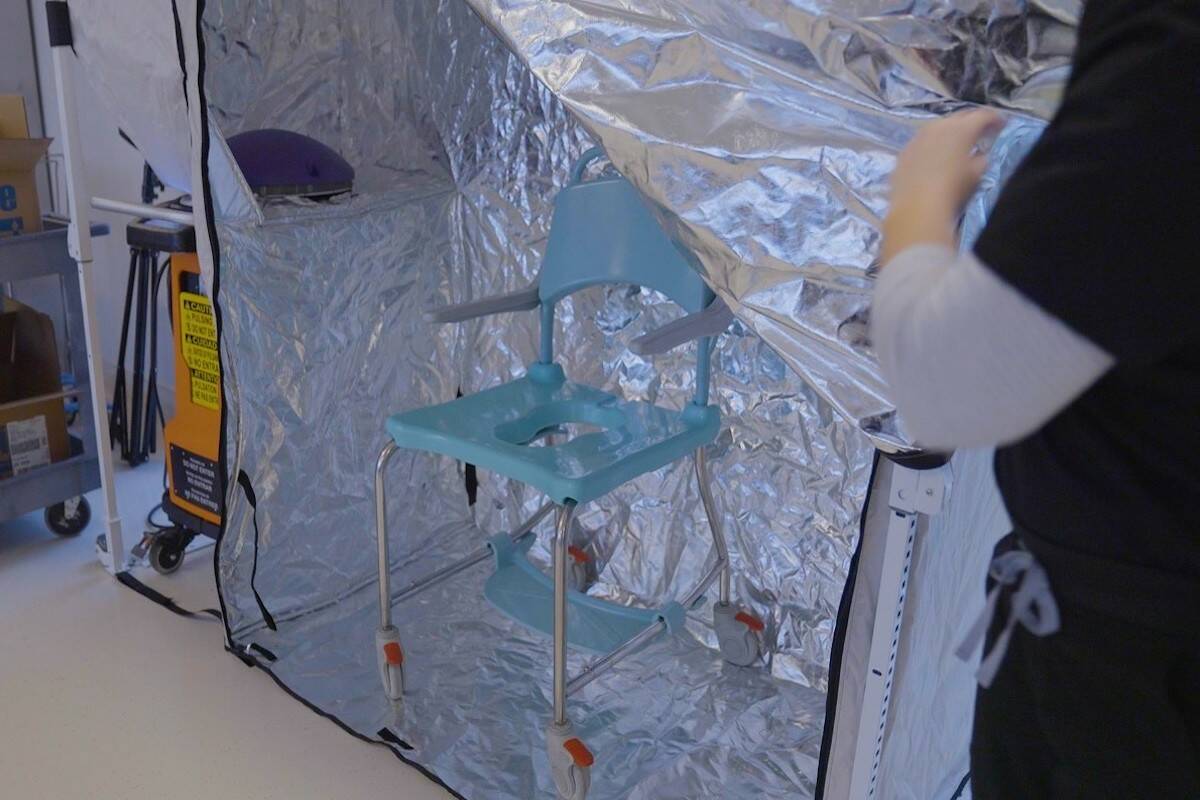Fraser Health has added two germ-fighting pods to its team of hospital robots.
UVGI pods and robots are deployed across the Fraser Health region to kill viruses and bacteria that linger on surfaces and can potentially cause infection, according to the health authority.
“Embracing new solutions is pivotal to providing our patients with the best care possible,” Dr. Victoria Lee, president and CEO of Fraser Health, said in a statement. “UVGI (ultraviolet germicidal irradiation) disinfection and our new disinfection pods are part of a multi-pronged approach to reduce hospital-acquired infections.”
The pods are tent-like structures that reflect and trap UV rays released by robots in order to clean equipment like wheelchairs, incubators and IV poles. They’re easily movable and collapsible, allowing disinfection to occur in small hospital areas without the need to close entire rooms.
Fraser Health’s Xenex LightStrike Germ-Zapping robots are the most utilized for disinfection, purchased in 2020 and funded through local hospital foundations.
All UVGI machines have logged thousands of hours and disinfected nearly 62,000 rooms in the past 21 months.
The robots emit short pulses of UV light, damaging DNA and RNA of harmful pathogens, including severe acute respiratory syndrome coronavirus-2 (SARS-CoV-2), Clostridioides difficile (C. difficile), carbapenemase-producing organisms (CPO), Candida auris (C. auris) and methicillin-resistant Staphylococcus aureus (MRSA).
Robots light up as they remove viruses and bacteria from a patient’s room in as little as 20 minutes. They keep an internal time-sheet of where and when they work, allow Fraser Health to monitor usage.
Housekeeping staff and health care aides support robots using traditional and chemical cleaning methods.
“We must remain vigilant to keep all viruses and bacteria out of our acute and community facilities,” Ruth Dueckman, executive director of infection prevention and control with Fraser Health, said. “UVGI robots and pods are one of the innovative tools to help keep our patients and staff safe. We have seen a reduction in some hospital-acquired infections such as C. difficile and MRSA since we first introduced UVGI disinfection into our region in 2016.”
READ ALSO: Vulnerable populations in B.C. more at risk to flooding: study

